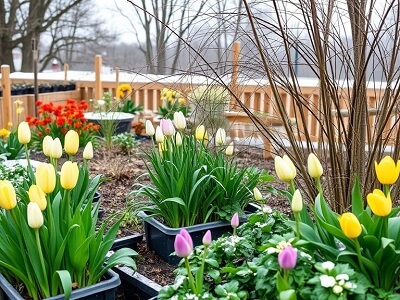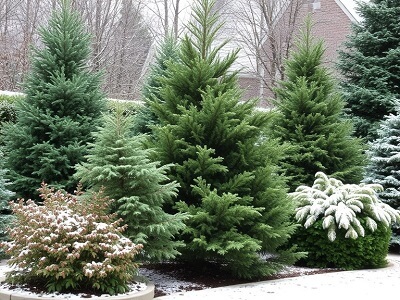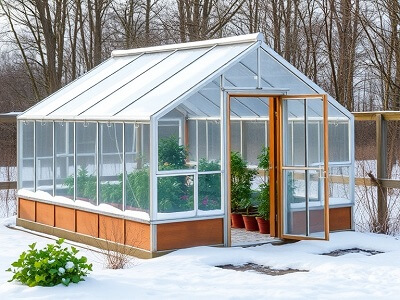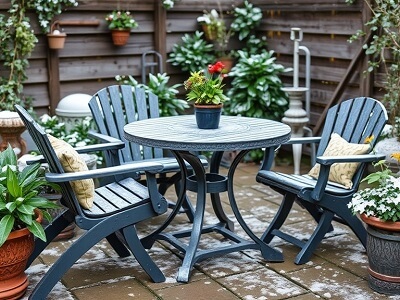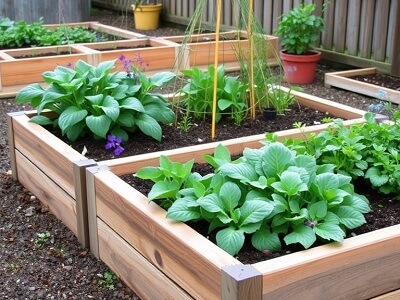 Raised garden beds offer many advantages, including better drainage, improved soil quality, and easier access for gardeners. However, like any part of your garden, raised beds need special attention in the winter months to ensure they’re ready for the next growing season. Winterizing your raised garden beds helps protect them from the elements, prevents soil erosion, and maintains the health of your plants. Here are a few key steps to take to properly prepare your raised garden beds for the colder months.
Raised garden beds offer many advantages, including better drainage, improved soil quality, and easier access for gardeners. However, like any part of your garden, raised beds need special attention in the winter months to ensure they’re ready for the next growing season. Winterizing your raised garden beds helps protect them from the elements, prevents soil erosion, and maintains the health of your plants. Here are a few key steps to take to properly prepare your raised garden beds for the colder months.
1. Clear Out Debris and Dead Plants
One of the most important steps in winterizing your raised garden bed is to remove any remaining plant debris. Leaving dead plants or old roots can attract pests and diseases that could linger through the winter and affect next season’s crops.
- Remove Dead Plants: Pull up any spent annuals, weeds, and any plants that didn’t survive the fall frost. Leaving them in place can encourage fungal diseases and pests like aphids or slugs.
- Cut Back Perennials: If you have perennial plants in your raised beds, trim back any dead or damaged growth, but leave healthy foliage to protect the plant’s crown during winter.
- Dispose of Debris: Dispose of plant waste properly by composting healthy material and discarding any diseased plants.
Clearing your raised beds of debris not only improves aesthetics but also reduces the risk of pests and diseases overwintering in your garden.
2. Amend the Soil
Winter is a good time to enrich your raised bed soil so it’s ready for planting when spring arrives. Over the course of a growing season, soil can become depleted of essential nutrients. By replenishing it before the cold sets in, you ensure that your soil remains fertile and well-drained.
- Add Organic Matter: Incorporate compost, well-rotted manure, or organic mulch into your raised beds to improve soil structure. Organic material will help retain moisture and nutrients, which is essential when the beds are not actively growing.
- Use Cover Crops: Planting winter cover crops, such as clover or rye, is a great way to protect the soil from erosion and enhance its fertility. These crops act as natural mulch and help fix nitrogen in the soil.
- Avoid Overworking the Soil: Don’t overwork your soil during the winter months, as this can cause compaction. Instead, focus on adding organic matter to improve soil health.
By adding compost and organic matter, you give your soil a head start for the next growing season while protecting it from the harsh winter elements.
3. Protect the Raised Beds
Raised garden beds are more exposed to the elements than in-ground gardens, so it’s important to take steps to protect them from winter’s harsh conditions.
- Cover the Bed: Use a tarp, row covers, or a layer of straw to cover your raised bed. This will help insulate the soil and protect it from freezing and thawing cycles, which can damage plant roots.
- Install Windbreaks: If your raised bed is exposed to strong winter winds, consider installing a simple windbreak made from fencing, burlap, or other materials. This will protect the bed from wind damage and reduce water evaporation.
- Check for Drainage: Ensure that the bed has proper drainage so that rain or snowmelt doesn’t cause waterlogging. If needed, you can add gravel or sand to the base of the bed to improve drainage before covering it.
Taking measures to protect your raised beds ensures the soil stays intact and healthy throughout the winter months, ready for planting in the spring.
4. Consider Winter Planting
If your climate allows, winter planting can be a great way to maximize the use of your raised beds. Certain cold-hardy vegetables and herbs thrive in the winter, and a little planning can extend your growing season.
- Plant Cold-Hardy Crops: Vegetables like kale, spinach, and broccoli can tolerate frost and even thrive in winter conditions. You can plant these in late fall or early winter, depending on your local climate.
- Use Row Covers for Protection: Even if you’re planting cold-hardy crops, using row covers can provide extra protection from extreme temperatures and allow for an earlier harvest in the spring.
Winter planting gives you a head start on the growing season and can yield fresh produce even in the colder months.
Conclusion
Winterizing your raised garden beds is an essential task for maintaining healthy soil and preparing your garden for the next growing season. By clearing out debris, enriching the soil with organic matter, protecting the beds from the elements, and even planting cold-hardy crops, you can ensure that your raised garden beds are ready for a strong spring comeback. With these simple steps, you’ll be able to enjoy a thriving garden when the weather warms up.

